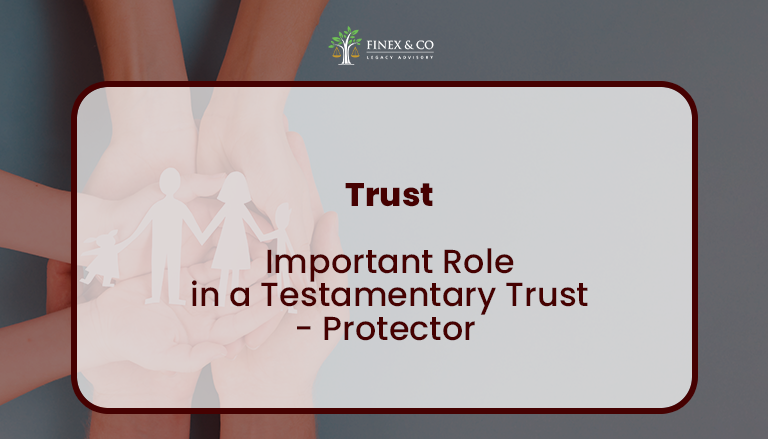In the realm of estate planning, testamentary trusts serve as powerful tools to ensure the smooth transfer of assets to minor beneficiaries according to the wishes and arrangement of the settlor. In Malaysia, testamentary trusts provide individuals with the flexibility and control they desire over the distribution of their assets. To ensure a testamentary trust works smoothly, the settlor should appoint a protector who is tasked with overseeing and safeguarding the interests of the beneficiaries.
What is Testamentary Trust?
Before delving into the role of a protector, it is essential to understand what a testamentary trust is. A testamentary trust is a legal arrangement established through a Will, wherein the testator include certain or all of his assets to be held in trust for the benefit of beneficiaries. Unlike living trust, which is created during the testator’s lifetime, testamentary trust comes into effect upon the testator’s demise, providing a mechanism for the orderly transfer of assets.
The Role of Protector
Protector acts like a guardian angel for the trust. They make sure everything runs according to the intentions of the testator and in the best interest of the trust beneficiaries. Here are key powers of the protector in Testamentary Trust:
1. Recommending changes to trust location
The protector can suggest moving the trust to a different place if it’s better for the trust beneficiaries. This means if the laws in another country or place change in a way that benefits the trust beneficiaries, the protector can recommend moving the trust there to make sure they get the best benefits possible.
2. Resolving conflicts
In the event of disputes among trustee and beneficiaries, the protector may step in to resolve conflicts. With their impartiality and fiduciary duty, the protector can help mediate disputes and maintain harmony within the trust.
3. Watching over the trust
The protector acts like a guardian, monitoring the activities of the trustee appointed to make sure they are doing a good job. These periodic reviews ensures that the trustee follows to the terms of the testamentary trust and fulfils duties effectively. This may enhance the transparency and accountability within the trust.
4. Deciding on important things
Certain decisions within the trust may require the protector’s consultation. These decisions could include makes any discretionary payments to beneficiaries and investment plan. This consultation ensures that decisions align with the testator’s intentions and the best interest of the beneficiaries. By providing input and guidance on discretionary distributions, the protector helps maintain fairness and consistency in the allocation of trust assets.
5. Taking care of properties which held on trust
If there are properties in the trust that nobody is using, the protector can suggest renting them out to make some extra funds for the trust and make sure everything is being used well. This helps to keep the trust financially strong and make sure the trust beneficiaries get the most out of it.
In summary, the protector in testamentary trust plays a very important role. They make sure the trust is run properly and that the trust beneficiaries are taken care. Protectors need to make sure everything in the trust works well and is fair for everyone involved. It’s important for people to understand the protector’s role because it helps them plan their estates better. Protectors make sure the testator’s wishes are followed, which helps build trust and prosperity for their future generations.
You may also refer to our article “Why do you need to setup a Testamentary Trust for you minor children?” to get more information about Testamentary Trust.
You may make an appointment with our legal advisor here: https://calendly.com/finex-and-co-legacy-advisory/tea-talk-with-legalexpert















